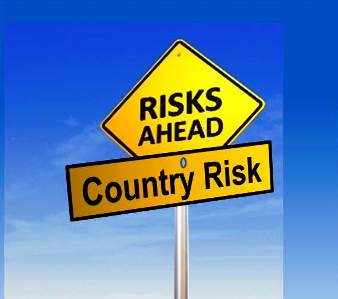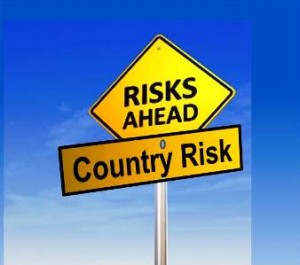 Australia – the aussie at par with the kiwi, almost;
Australia – the aussie at par with the kiwi, almost;- Japan – a credit downgrade that makes little sense;
- Kazakhstan – an apology for an overwhelming election victory;
- Sweden – struggling to keep the exchange rate down;
- Venezuela – down to having to hock gold.
ALBANIA: The country remains on track to join the EU – eventually – but much remains to be done in the way of reforms before membership can become a reality. Unemployment is still a big problem and the external accounts are apt to deteriorate, but not to the extent of causing real problems.
CYPRUS: The last of the 2013 capital controls were lifted and the Island is now trying hard not to get lumped in with Greece in the eyes of the international capital markets, but the economy is going through a difficult recovery. One of the biggest problems is a staggeringly high NPL ratio on the books of local banks.
GAMBIA: The country received emergency BoP support after its external accounts were hit hard by Ebola outbreaks among neighboring nations. With luck, the economy should start recovering this year. The political quiet will help, though it is one achieved by repression, following a coup attempt that had the makings of a dime novel.
GREECE: The day of reckoning is approaching in a hurry, and as yet there is no telling whether Athens will make a deal with Brussels, and if so, what it may look like. We continue to judge the odds of an arrangement being found as better than 50:50 but no one can be absolutely certain, of course, how a Grexit would play out.
LESOTHO: With political stability restored, this country is headed for what could be a fairly good year for its economy. The need to diversify away from an extreme dependence on South Africa remains great however, and it is doubtful that the new government can implement the needed reforms.
PAKISTAN: The country may become the principal beneficiary of a hugely ambitious project the Chinese hope to build as an “economic corridor” to the Arabian Sea. The economy is not doing badly and has enough momentum to persuade Moody’s to consider the first upgrade since 2006.
SAUDI ARABIA: The decisive but surprising shift of power made by King Salman poses as many questions as it provides answers, especially in its domestic implications. In foreign policy, the new appointments appear more revealing. Saudi Arabia has much to worry about as it tries to counter Iranian influence in Syria, Iraq and Bahrain.
UNITED STATES: The disappointing economic result reported for the first quarter may have been due to “transitory” factors or it may be part of a pattern established since when the recovery began. Either way, it probably means that the outcome for all of 2015 will again be nothing much to write home about, and the odds that the Fed will start raising interest rates this year are fading fast.
This page is provided by S.J. Rundt & Associates, Inc., specialists in country risk assessment, consultants to multinational companies & banks, and publishers of Rundt’s World Business Intelligence and The Financial Executive’s Country Risk Alert. To order a subscription or individual issues of these reports, in print or by e-mail, contact S.J. Rundt & Associates, P.O. Box 1572, Montclair, NJ 07042; Telephone: (973) 731-7502, Fax: (973) 731-7503; E-mail: info@rundtsintelligence.com; Web site: www.rundtsintelligence.com.























